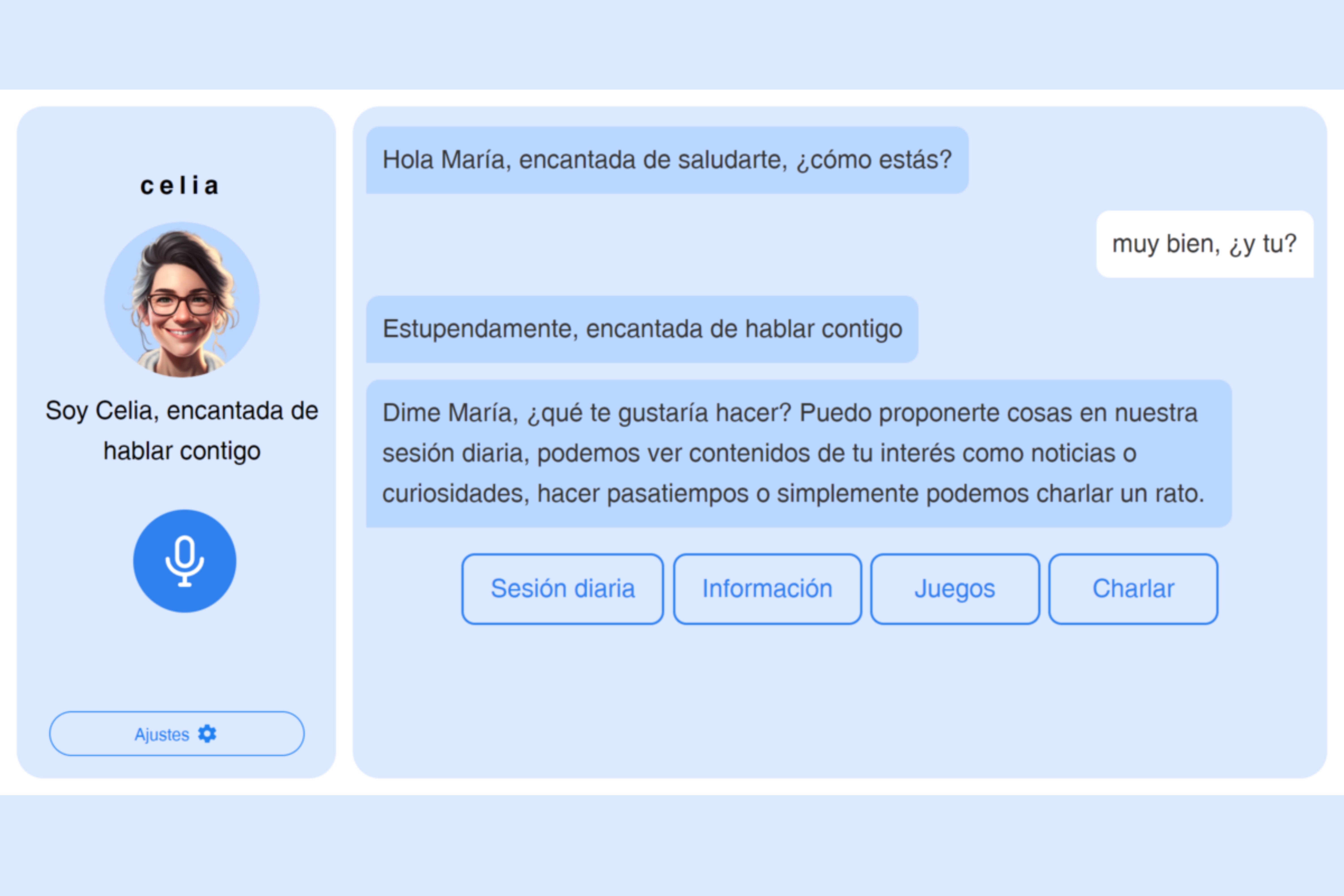
Latest information

Celia, the Galician virtual assistant that takes care of and accompanies the elderly
According to INE data, there are a total of 9.7 million people over 65 years of age in Spain and forecasts indicate that this figure will rise to 15 million in the coming decades. Of these people, more than 2 million currently live alone and this figure will grow to 7 million in 20 years. Moreover, there are currently no effective early detection mechanisms for cognitive diseases such as Alzheimer's or dementia. However, it has been proven that treatment in early stages can help delay their progression and improve the quality of life of these patients. In this context, the Celia project was born, developed by a multidisciplinary team of atlanTTic, the Center for Research in Telecommunication Technologies of the University of Vigo.
"Celia is an intelligent virtual assistant that entertains, accompanies and cares for the elderly. In order to offer an optimal user experience, generative artificial intelligence is used for conversations, but with models that respond by adapting to the user profile to which it is addressed, always under the supervision of gerontologists," explains Francisco Javier González Castaño, the project's director. "Moreover, Celia does not just respond to the user, but proposes activities and asks questions in order to empathize. Along these lines, there are what we call 'virtual friendship levels' through which Celia gains trust with the user as time goes by," he continues.
The main differential is the health part, since Celia analyzes conversations and voice to determine possible ailments and alert the user and/or their relatives and caregivers in case any anomaly is detected. Celia currently monitors aspects of depression and anxiety, closely linked to situations of unwanted loneliness, and also possible signs of cognitive impairment, always thinking about prevention and early detection.
Since Celia's goal is to entertain, accompany and care for the elderly, the main use cases focus on people living alone (with or without assistance) and dependent people who have difficulties in socializing; elderly care centers whose activity could complement Celia for personalized follow-up; and hospitals and health centers, in order to prevent depression and anxiety problems and also to help in early detection of neurodegenerative diseases.
Celia is currently available as a WhatsApp contact, simply by adding the phone number +34 655 641 445, or it can be used through an App that can be downloaded from Google Play. The web version can also be used directly: https://celiatecuida.com/app.
"Once the account is created Celia will introduce herself and you can already converse with her in a natural way. You can use your voice (voice notes in WhatsApp) or you can write to talk to her. Celia will guide the user through the conversations and make suggestions," explains Francisco Javier González Castaño. Apart from chatting about any topic, among the specific content that Celia currently presents is weather information, news, ephemeris and curiosities, games (word of the day, hidden word, word search and riddles) and it also offers the possibility of taking health tests. In addition, it can remind the user to take a medication or have a doctor's appointment.
Ignicia program support
Celia has been supported by the Ignicia program, promoted by the Xunta de Galicia with the collaboration of the Barrié Foundation. "The Ignicia Program has provided essential help to be able to valorize Celia's technology, since it has made it possible to create a minimum viable product to validate it in the market," explains González Castaño. "What we have valued most about the program is the possibility of having specific funds to carry out a market study, develop a business plan and disseminate the project. All these steps are fundamental, since the final objective is the creation of a spin-off of the University of Vigo that can commercialize the solution," he continues.
Looking to the future, its main challenge after the great acceptance and the thousands of users who are already interacting with it, is to enhance the personalization part so that the experience of each user is unique, along with the health part, offering follow-up reports with information of interest and advice for the user and their caregivers (if any).
"In the medium term we would like to grow, capturing more users internationally, first in Latin America and then opening up to more countries after offering support in English," he concludes.